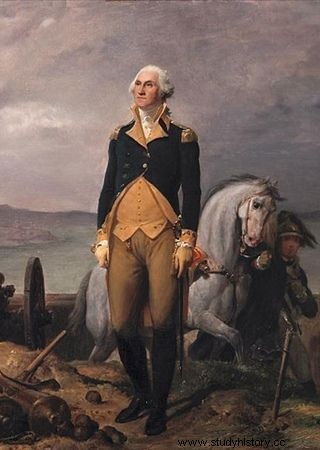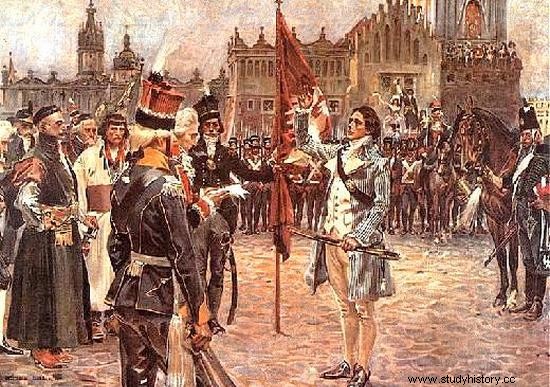Tadeusz Kościuszko went down in history as a hero of three nations. But he might as well have ended his life in the choppy Atlantic waters as an unknown unemployed person.
In the spring of 1776, almost all of Europe lived on what was happening on the other side of the ocean, where the inhabitants of 13 American colonies rebelled against the British. One of the French diarists noted that: in the camp and in the church, in the salons of nobility and democracy, nothing was discussed but about the independence of America.
Unemployed in dire straits
No wonder then that young Tadeusz Kościuszko - who had just arrived in Paris - decided to join the Americans fighting for independence. Especially that, as they themselves emphasized, they needed weapons, gunpowder and, above all, engineers . Meanwhile, Kościuszko was in need of a job. Despite his excellent military education, received in the Cadet Corps of the Knight School, he could not find a job anywhere.

Kościuszko, with his engineering education, turned out to be an invaluable treasure for Washington.
It was 1775 and the Polish-Lithuanian Commonwealth was just collapsing into ruins. The army was reduced to 10,000 men, and no one thought of recruiting newbies like Kosciuszko. The nearly thirty-year-old nobleman also sought his fortune in Germany, but they did not want to hire him either to join the army of the Saxon elector or to work at his court.
America was his last resort - and he knew that George Washington's army would not despise a specialist like him. But before our compatriot could show what he could do, he had to cross the Atlantic first.
After making the necessary preparations in June 1776, the future chief of the insurrection boarded Le Havre on a small schooner and set off for the New World. The expedition to the other hemisphere at that time was still a tedious and dangerous undertaking. Kosciuszko and several of his comrades-in-arms who went with him were to find out the hard way.

Kościuszko as a superhero going to the rescue of America? There is actually something to it. Illustration from the book by Jan Wróbel, “Historia Polski 2.0. Pole, Rusek and German ... ”(Znak Horyzont, 2015).
A salutary mast
The British blockade of American ports was to blame for everything, which forced the ship carrying European mercenaries to take a route leading south through the French colony to Santo Domingo (present-day Haiti). And since tropical hurricanes raged in this area in the summer, it did not bode well for the entire escapade.
And indeed, after two months of voyage, the already strained schooner fell into a very strong storm that smashed it into a small poppy against a coral reef . Fortunately for Kościuszko and his companions, they managed to grab the mast at the last moment and swim to the coast of Martinique with their last strength.

Less than a year later, readers could learn from the Warsaw newspaper "Nowiny" that:
The fortune of a strange divine providence ruled that, having freed Mr. Kościuszko from sea currents by the wrecked ship of W. Jmcia, a citizen of our country from W. Ks. point, [...] with five other Poles, saved them alive by grasping the mast and swimming to the island.
And the only thing left to consider is how history could have unfolded if Kościuszko had gone down with the sailing ship? As he rightly emphasizes in his book "Historia Polski 2.0" Jan Wróbel, our compatriot, for eight years of service in the Continental Army, showed himself from the best side:
He built the legendary fortifications around Saratoga and the West Point Fortress, and became a general of the US Army, a revered hero of the American Revolutionary War.

Tadeusz Kościuszko's oath at the Market Square in Krakow. Were it not for the salutary mast that Kościuszko clung to, Wojciech Kossak would not have painted this picture.
If his engineering genius were missing, would the British have suppressed the rebellion? Probably not, but the American Revolutionary War would surely take longer and take more lives from the colonists.
What about our story? Who would replace Kościuszko at the head of the 1794 insurrection? One may wonder whether the uprising would have broken out without it. And if so - would we gain from it, or would we lose ...
